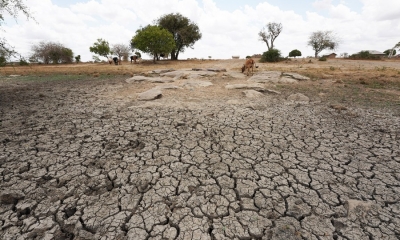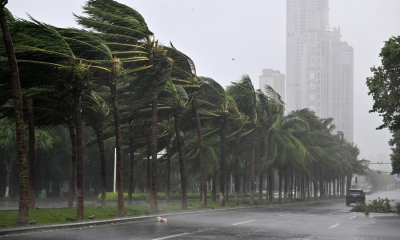Anarchy and the Selfish Virus
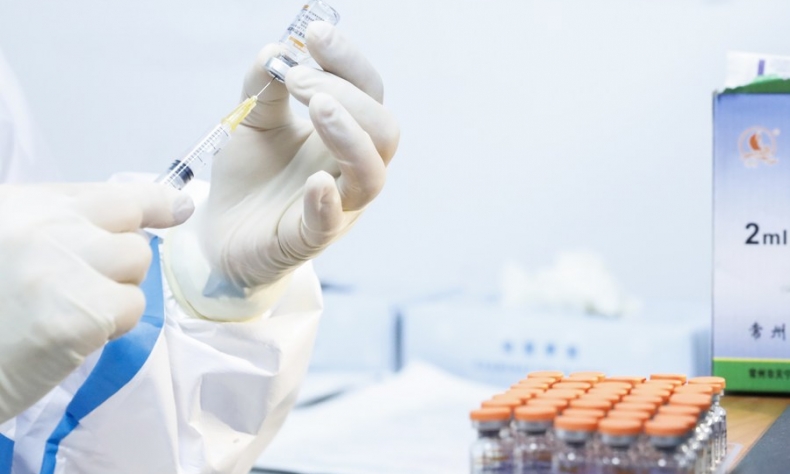
The pandemic has demonstrated that the international anarchy favouring selfishness by states and profit maximisation by companies results in unnecessary deaths and a failure adequately to resolve global problems.
It is little more than two years since the COVID-19 virus was first identified. Ruthlessly efficient, the virus has evolved, infected around 300 million people, and tragically resulted in over 5.4 million deaths. More than one million people are still succumbing to infection every day.
The pandemic has revealed the very best in human nature – but also, sickeningly, the worst. Globally, frontline personnel have worked selflessly caring for the ill, administering to the isolated, consoling those who have lost loved ones, and keeping supply chains open to feed and sustain communities. Since January 2020, when the virus was first genetically sequenced in China, scientists have reinvented scientific method to develop 10 effective vaccines approved by the World Health Organisation (WHO). By the beginning of 2022, health workers had managed to vaccinate 49 percent of the world’s population.
Hiding beneath these impressive achievements, however, there is the anarchy of global politics. This has resulted in just four percent of populations in the poorest countries being fully vaccinated. Meanwhile, Canada has sequestered five times more vaccine than is required; Australia has four times the quantity necessary to vaccinate its population; and New Zealand, the U.K. and the European Union three times. Israel is currently vaccinating its elderly population for a fourth time.
Most knowledgeable scholars consider the natural state of international relations to be one of anarchy in which nation states are sovereign and compete for success in the form of survival and, ultimately, dominance. The parallel with viruses is clear: Omicron is in the process of dominating and obliterating the Delta strain of COVID-19. Certain analysts argue that chaos is inevitable in international affairs and even desirable. Anarchy undoubtedly suits the most powerful nations and their agents; they are the main beneficiaries of the current world order and will fight, sometimes literally, to preserve it.
In a world still largely shaped by capitalism, the market and governments are the most powerful institutions within the international system. The former is focused on profit and efficiency with wealth, inequality and poverty being inevitable consequences. Within states, governments have an interest in reducing the destabilising effects of inequity and poverty. Internationally, there is no corresponding power to temper the pressure towards exploitation and the concentration of wealth that occurs when statecraft and boardrooms combine.

While the pandemic has destroyed lives, livelihoods and families, the health industry has reaped profits estimated at billions of dollars. With firms demanding that governments take on the financial risk of research and development, the state-funded U.S. Biomedical Advanced Research and Development Authority alone invested US $19.3 billion in developing vaccines with private industry. By November 2021, Moderna – a company that had never previously manufactured a successful vaccine – had reported revenue of billions of dollars from its COVID-19 vaccine, while Pfizer had generated US $13billion in sales in the third quarter.
Oxford University initially offered to make the vaccine developed by its faculty freely available to companies. It was rapidly persuaded against this humanitarian gesture, presumably because it would have disrupted market forces. Linking with Oxford University, AstraZeneca, a British-Swedish multinational company, chose to sell the vaccine ‘at cost’ during the pandemic. It is suspicious, therefore, that the Oxford-AstraZeneca vaccine still has not been licensed for use in the U.S.A. where companies have maintained high prices and profits. Two billion doses have been delivered globally, almost two-thirds to low- and lower-middle-income countries.
COVID-19 has mutated into multiple variants, and over 4.3 million people have died since India and South Africa first petitioned the World Trade Organisation, under the existing ‘TRIPS’ protocol, for a waiver on the intellectual property rights on vaccines. This was on October 2, 2020. Supported early by China, the proposal would have enabled local production of vaccines close to where they were needed.
However, the idea was initially opposed by the U.S. and, reflecting lobbying by the health industry, it is still being blocked by the European Union. With talks deadlocked, Dagfinn Sørli, the Norwegian chair of the TRIPS Council, recently suggested that ‘ongoing high-level engagements’ be allowed to ‘continue and mature.’ The virus will predictably take many more lives before these engagements reach maturity.
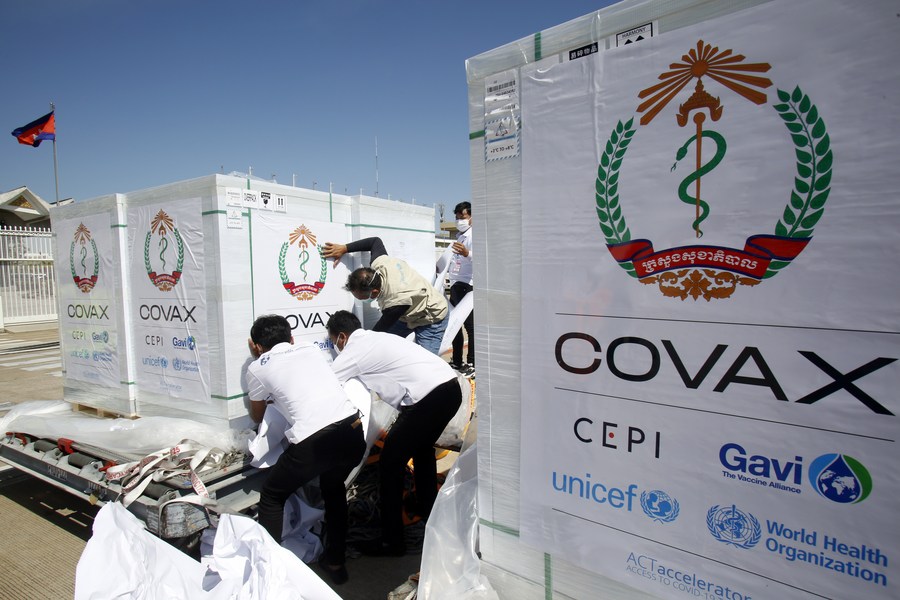
From early in the pandemic, the World Health Organisation sought to ensure a uniform roll-out of vaccine across the world. The aim was to ensure that people in low and middle-income countries were able to be vaccinated at the same time as those in wealthier nations. The strategy would also have limited the emergence of new and more lethal variants. As Dr Tedros Adhanom Ghebreyesus, the WHO Director-General, emphasised, ‘No one is safe until everyone is safe!’
To this effect, the WHO established COVAX, a two-tier, multilateral purchasing agreement. Rich nations, unwilling to join, were enticed to do so by allowing them simultaneously to enter into bilateral purchasing agreements. This reduced the collective resources and purchasing power of COVAX and triggered the scramble by high-income countries to buy up vaccines ahead of COVAX itself.
Moreover, while rich countries were willing to make public gestures and pledge to donate vaccines for COVAX to redistribute, none has delivered the doses promised. At the beginning of December 2021, most countries had provided less than a fifth of what they had pledged.
The pandemic has not only revealed the selfishness of rich nations and the preparedness of the health industry to prioritise profit over people. It has also illustrated that governments are willing to exploit a pandemic to retain global dominance.
China has sought to make its vaccines against COVID-19 available to everyone as a global public good. To date, it has delivered around 2 billion doses to over 120 countries and international organizations including donations of over 136 million doses. Moreover, following the spirit of WHO guidance, China began exporting vaccines long before its national rollout had covered 50 percent of the population.
Rather than this being recognised as a contribution to global welfare, China was strongly criticised by Western governments that had chosen to fully protect their own populations before helping anyone else. China was accused of ‘vaccine diplomacy’ although many rich countries could equally have been accused of ‘vaccine nationalism.’
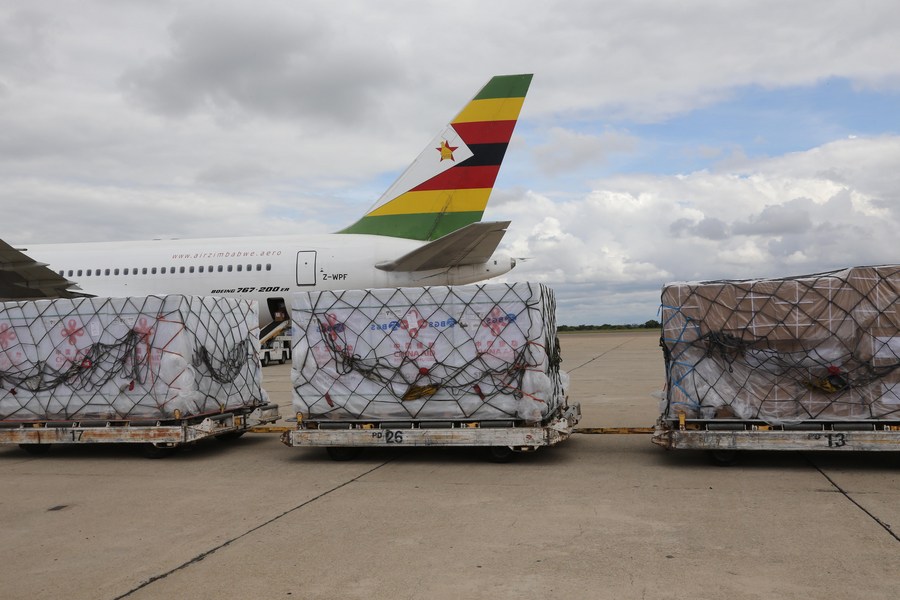
Indeed, right-leaning commentators suggested that America’s policy of vaccine nationalism should be abandoned and replaced by a diplomatic strategy that exploited the supply of vaccines to counter an imagined ‘Chinese threat.’ In response, U.S. President Joe Biden moved onto the diplomatic offensive. On March 12, 2021, he announced his intention to work with three ‘like-minded’ nations, Australia, India, and Japan to deliver millions of doses of vaccine to Southeast Asia. It is unclear how many doses have been delivered as opposed to being pledged.
China was able to export vaccines because of its successful policy of immediate lockdown with effective systems of testing, tracing and quarantining. The WHO was early to recognise the success of the Chinese approach but was heavily criticised for promoting it. These measures were described as “draconian,” “repressive” and “heavy-handed” by Western media. Indeed, when the ineptness of America’s lax control policies became evident, President Trump repeated these claims, turned on China, and threatened to leave the WHO – ridiculously claiming that it was under the ‘total control’ of China.
After considerable uncertainty and undue delay, many European countries including Italy, Britain and France adopted lockdowns operating nationally. By May 2020, 90 percent of states had some form of stay-at-home recommendations in place and these were compulsory – at least nominally – in 80 percent of the countries. Lockdowns were even employed in New York, Kansas City, and in seven U.S. states; the one in California lasted for 453 days.
However, challenged by the libertarian right, many Western governments have been unable to sustain social policies that prioritise human life and well-being rather than profit and income growth. Preventative measures have repeatedly been delayed, short-lived and haphazardly implemented. It is no coincidence, therefore, that COVID-19-related death rates are currently 2,550 in the U.S.A. and rising, 2,228 in Italy, and 2,177 in Britain compared with just 92 in China.
The pandemic has demonstrated that the international anarchy favouring selfishness by states and profit maximisation by companies results in unnecessary deaths and a failure adequately to resolve global problems. Human ingenuity has delivered effective vaccines very quickly. It must now be employed to develop structures of international governance which are powerful enough to protect humanity from the virus of economic greed that is so often masked by self-righteous ideology.
 Facebook
Facebook
 Twitter
Twitter
 Linkedin
Linkedin
 Google +
Google +




